
Issue #79: Thursday 8 May, 2025
Yes, yes, I know it’s been nearly three months since the last issue of this newsletter, for which my apologies.
I’m still struggling to recover my enthusiasm and energy for reading and writing reviews since I lost my wife last year. I’ve read far fewer books this year than is usual for me.
Let’s hope that if I get this issue out I’ll be able to return to something like my old publishing schedule.
I should also say here that my friend Perry Middlemiss and I have restarted our podcast Two Chairs Talking, on a roughly monthly basis. If you’d like to listen to it, you can either search for that phrase in your usual podcast client, or go to our website here. We’re also publishing transcripts of each episode in an associated print production Two Chairs in Print, details of which are on our website.
OK, most of the following will be very brief so that I can catch up. I don’t have the enthusiasm to write extended reviews for everything.
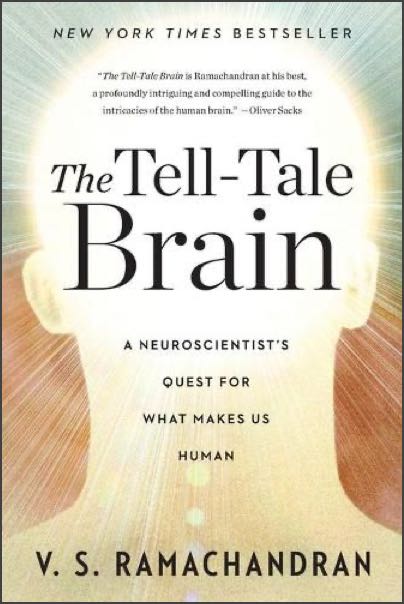
A re-read. Fascinating look at how the human brain works, particularly illuminated by instances where it doesn’t work correctly, or is broken in some way. If you love the books of Oliver Sacks, this is a must-read.
This time around though I wasn’t too convinced by his ideas as applied to human creativity and art. I skipped through those chapters.
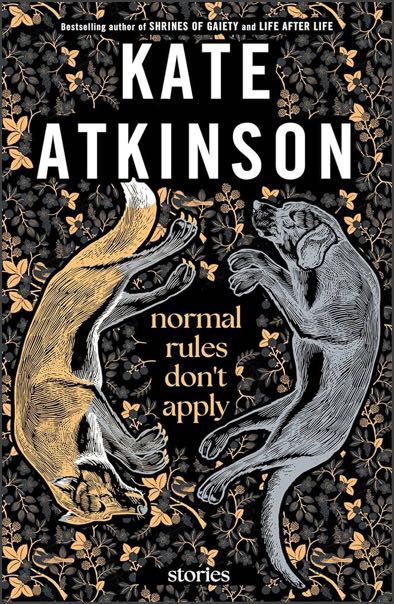
Really interesting collection of short stories, which at first seem independent; but as you get further into the book links between them keep popping up. I really like Atkinson’s writing, I think I’ve read everything she’s ever published.
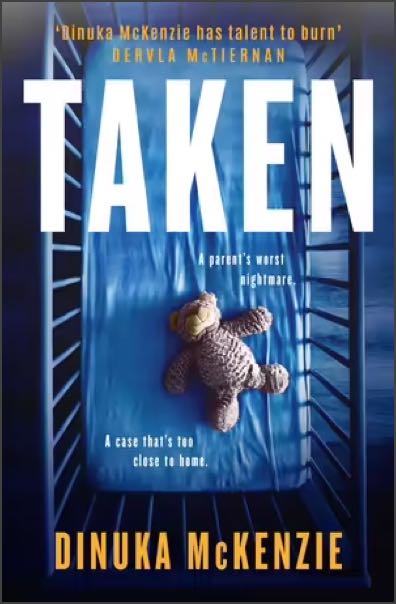
Pretty good police-procedural thriller by the author of The Torrent (which I reviewed here), which was her debut novel. This is a sequel, featuring her character Detective Kate Miles. In this one, a baby is stolen, and with a newborn of her own, Miles finds she is becoming too emotionally invested in the case.
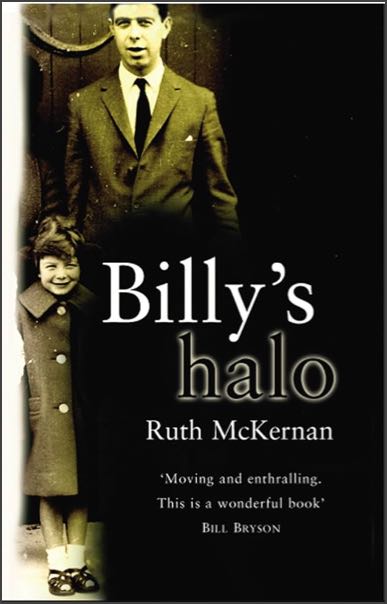
This was an excellent non-fiction book, both very personal as it tells of the author’s close relationship with her father and her grief at his death, and very analytical as it goes into great scientific detail about what was going on. As well as very interesting philosophical insights.
I’m glad I read it, but of course having had a severe loss myself only a few months ago there were times I questioned my decision to tackle it.
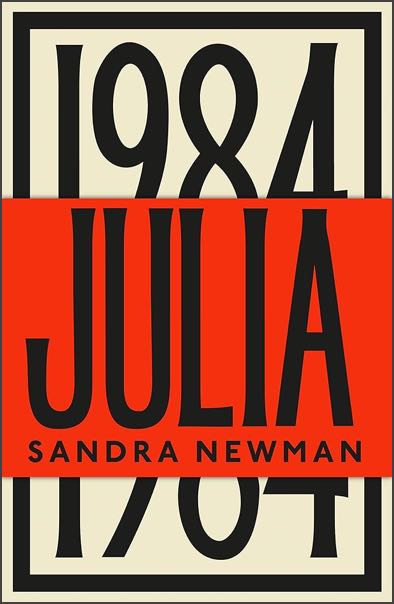
A very interesting spin on George Orwell’s novel 1984, told from the point of view of Julia, the woman Winston Smith falls in love with and memorably betrays towards the end of that book. I liked it a lot because of the way it fills in the background of what led up to the establishment of the authoritarian Party. I’m less sure of the rather wish-fulfilment ending.
But Perry and I are going to be talking about this book in detail in a future episode of our podcast, so I will say no more for now.
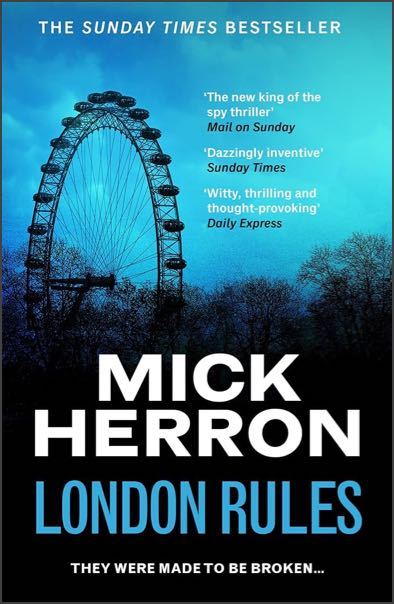
Another in Herron’s Slough House series of thrillers, which are being turned into an excellent TV series called Slow Horses on Apple TV+. Entertaining, page-turning stuff but no deeper than that. I picked this up at the depths of my struggles to get back into reading much at all, and it seems to have turned the trick.
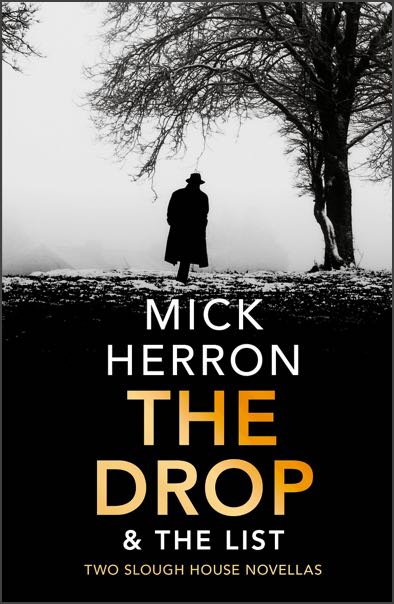
Two interlinked novellas in the Slough House series. Interesting that the publisher chose to list them in the title in this order, when in fact the stories are chronologically in the order of The List which leads up to the events in The Drop.
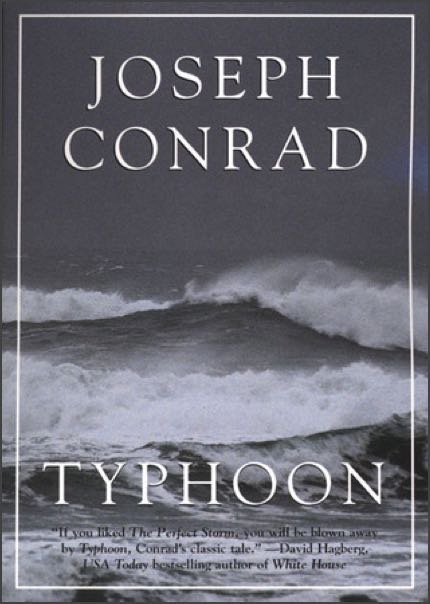
Joseph Conrad is by any measure a remarkable writer. I can’t think of any other writer who achieved such literary renown in English Literature although English was not their first language. And in his case, English was not even Conrad’s second language. That was French. He was born Józef Teodor Konrad Korzeniowski in Poland in 1857, but inspired by romantic tales of adventures at sea, was determined to become a sailor from the age of 13. He joined the French Merchant Marine, and four years later, the British Merchant Marine, and travelled among other places to the Belgian Congo and what were then called the “East Indies”—including China, Vietnam and Indonesia.
His short novel Typhoon, published in 1902, is basically the story of one particular steamer which encounteres a severe typhoon at sea on its way to a port in China. Among other cargo, it is carrying two hundred or so Chinese men returning home, each man carrying his earnings in a small wooden chest he carries with him at all times.
There is some wonderful dramatic writing about the storm and the ship’s struggles to survive, which seems not at all certain for chapter after chapter. But the story is really one of character, particularly that of the steamer’s captain, Captain MacWhirr. Conrad depicts him as a stolid, good man with almost no imagination, a man who cannot understand a metaphor, and is baffled that his subordinates can talk to each other for hours, he can’t imagine what about. It’s this lack of imagination that enables him to face the terrible storm with equanimity.
Wonderful writing, based solidly on Conrad’s personal experience but enlivened with a dramatic imagination.
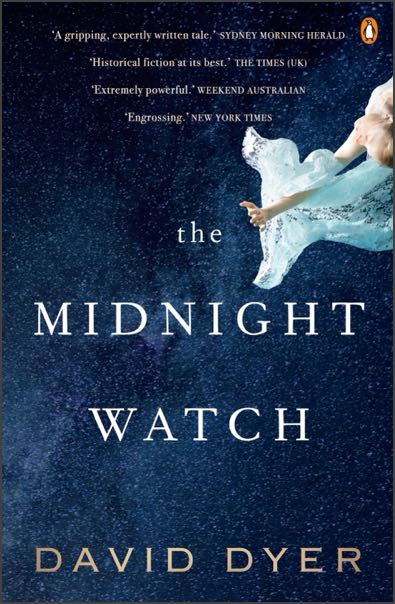
Australian author David Dyer wrote an amazing book called This Kingdom of Dust, published in 2024. I reviewed it here, and Perry and I discussed it at length on our podcast here. The book is on the longlist for the Victorian Premier’s Literary Prize this year.
The Midnight Watch is Dyer’s debut novel, a piece of pure historical fiction. Told mostly from the point of view of an alcoholic investigative reporter for a Boston newspaper, it follows his almost obsessive pursuit of the (true) story of the Californian, a cargo ship which was relatively close to the Titanic when it sank, and which saw its distress flares, but inexplicably did nothing. Dyer’s aim is to probe that “inexplicably” and try to come up with some answers.
Very well done indeed, a gripping story well told. Dyer is certainly an author worth keeping an eye on.
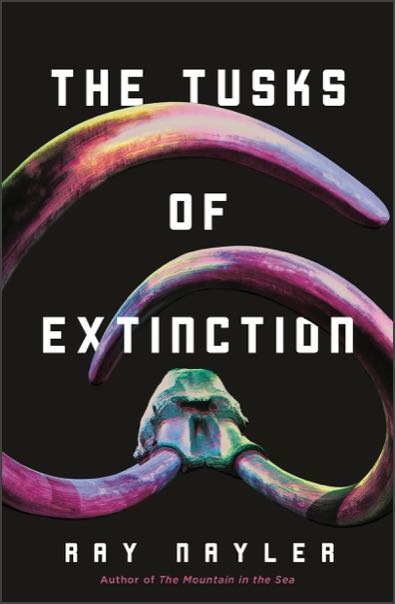
Ray Nayler is an American/Canadian writer. Perry and I were very impressed by his debut novel, The Mountain in the Sea, which explored the idea of intelligent species other than humans living on the Earth.
Tusks of Extinction is a 2024 Novella, nominated for Best Novella in this year’s Hugos. On the first page of the book, we’re introduced to a character called Damira, and on the first page, within a few sentences, we discover that she is a mammoth.
Now I confess that when I read that I kind of groaned inwardly. I’m not at all fond of fiction which purports to be inside the mind of some non-human or alien creature, but in which their thoughts are essentially identical to those of white, middle-class folk like the author. But I persisted, particularly because on that same first page we find that Damira is following a trail of blood, so there was some suspense involved. Then we get a flash-back of memory and we find that Damira is or was a young woman in Africa doing her best to stop the killing of elephants for their tusks, despite worldwide bans on selling ivory, but always failing. So that was intriguing. How did Damira get to be a mammoth? Mammoths, which after all, are extinct.
Another important character in the story is a teenage Russian boy called Svyatoslav, who is taken by his father on expeditions to the frozen north to find bodies of ancient mammoths in the permafrost, again for the value of the ivory in their tusks. It’s a rough, brutal business and the men who do this are also rough and brutal, prone to thieving and murder among themselves.
And finally we have Vladimir, the husband of a multi-billionaire called Anthony who is on an expedition to hunt mammoths, an expedition for which Anthony has paid a vast sum of money.
So that’s the set-up. I won’t go into any more detail about how the story pans out, or describe the fate of Damira and the other mammoths.
I thought Tusks of Extinction was excellent and intriguing, plenty of food for thought. It certainly makes you hate poachers with a white-hot desire for vengeance.
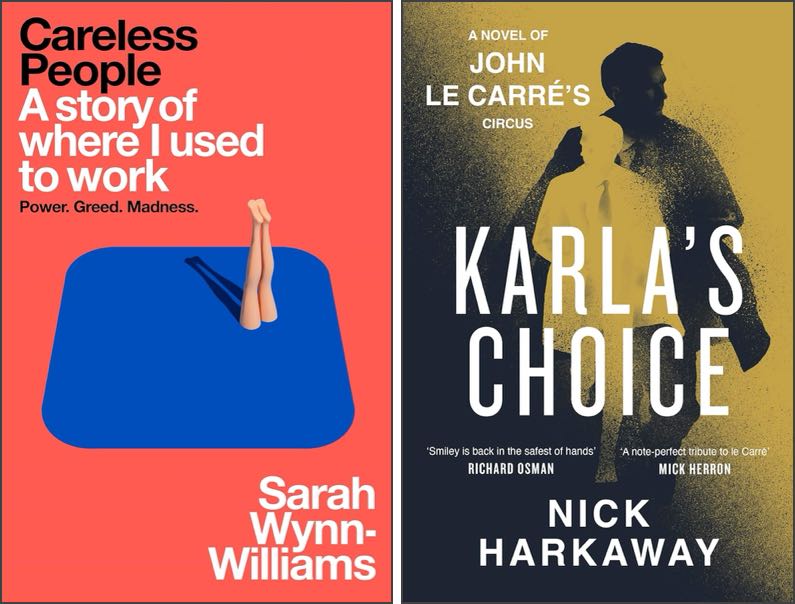
In contrast to my slump in reading this year, I have been watching a lot of films and television. Some have been re-watches of old favourites, others new films I’ve seen in the cinema.
Because there’s so much I’ve seen, I’m only going to give very brief reviews below.
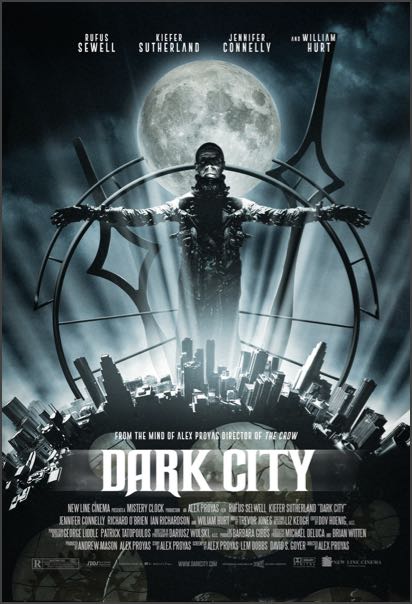
A re-watch. One of my favourite science fiction films, perhaps my very favourite. I’ve watched it several times.
Great concept, very cleverly done. Make sure you see the Director’s Cut version, not the version first shown in cinemas, which included some spoon-feeding narration at the start explaining what is going on. The real delight of the film is the slow dawning of the viewer’s understanding that things are very strange in what at first seems a fairly-ordinary 1950s American city. Great cast with Rufus Sewell, Kiefer Sutherland, Jennifer Connelly, William Hurt and Ian Richardson and many Australian actors.

Pretty good thriller series starring Eddie Redmayne and Lashana Lynch, based very loosely on Frederick Forsyth’s 1971 novel but considerably updated. It was well done, and Redmayne is great in the part; but I did find myself thinking sceptically that we’re meant to feel sympathy for this character and his desperate attempts to maintain a family life (in luxurious circumstances), even though he’s a cold-blooded killer. Admittedly we do get some scenes towards the end of the first season where we see him deeply regretting having to kill people to ensure his freedom; he does have a conscience, we’re meant to believe.

I really liked this crime/thriller on the Apple platform. Two men, friends from childhood, come up with a scheme to pretend to be DEA (Drug Enforcement Authority) agents. In this role they carry out “raids” on small-time drug dealers and steal all of their drugs and cash. Neat scheme until it goes badly wrong. Really badly wrong! They enter a spiral of terror as they are tracked by a major drug group intent on revenge, at the same time as the FBI is also on their tail. Good stuff, but very violent, be warned.

Lightweight but very enjoyable SF movie starring Tom Hanks as a scientist/engineer who is one of the few survivors after a global catastrophe due to a very severe solar storm hitting the Earth. He puts together a roughly humanoid robot, and together with a much smaller dog-like robot and a real dog they set off across America to try to escape violent hurricanes and tornadoes. The interactions of Hank’s character Finch and the humanoid robot (who eventually names himself “Jeff”) are full of humour and occasional pathos.
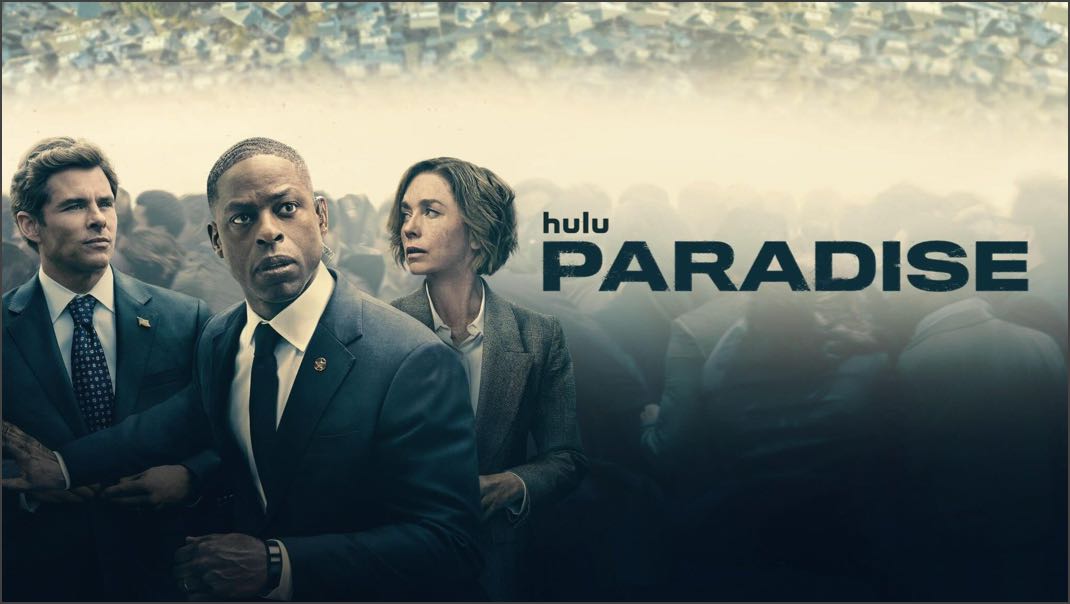
I saw this series being advertised on Disney+ and decided to have a look, which I’m glad I did. Pretty good SF set in the near future. Mind you, it takes a while before we realise that it is SF, as it starts with the murder of the President of the United States in his mansion-like home (which is clearly not the White House). The body is found by Xavier Collins (played by Sterling K. Brown), the head agent of the President’s Secret Service protection team. Missing from the President’s apartment is a touchpad which is apparently of great importance.
It’s only slowly that we discover this is all set, not in Washington D.C., but in a vast underground bunker where a select group of people (of course including all the top Government officials) has retreated to survive a world-wide cataclysm.
There are considerable political shenanigans going on, and we start to see the power behind the scenes held by an unelected woman who is generally known as “Sinatra” (played by Julianne Nicholson).
It’s been renewed for a second season, which I’ll certainly be watching.

What can one say about Severance other than it’s unmissable but very, very strange. Ben Stiller is the Executive Producer and the lead director of the series. Great concept: a workplace which is supposedly carrying out such sensitive work that those who work there have to agree to have a procedure which inserts a chip in their brain. This chip ensures that when they get home the workers cannot know anything about what they do at work; and similarly, while at work, the workers have no knowledge of their everyday lives outside the facility.
There are other aspects which are deeply, deeply strange. The second season didn’t let us down, and it has been renewed for a third season. I just really, really hope that we’re going to get some explanations for what is going on before the series eventually terminates.
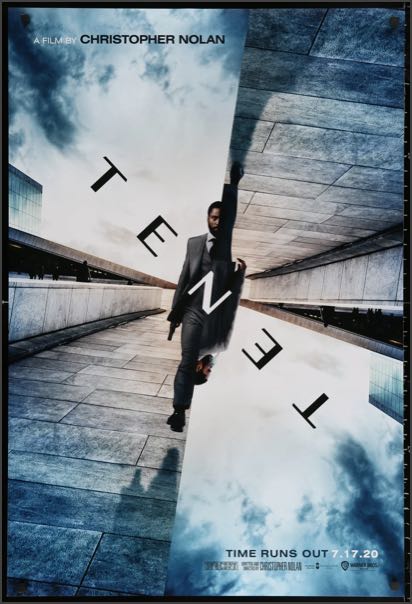
A very strange, very confusing, science-fictional thriller with much derring-do about reverse time. Christopher Nolan often directs brilliant films, but not always. There have been some definite misses as far as I’m concerned. Interstellar was one of them, and Tenet is another. But I have to admit, even his misses are at least interesting misses.
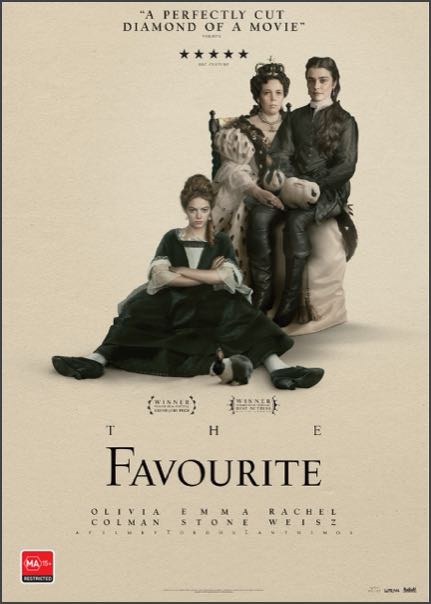
Terrific acting by three women in this period drama set in the reign of, and indeed in the palace of, Queen Anne. The story is of the triangular relationship between Anne (played by Olivia Coleman), who is on the edge of dementia and often behaves childishly; her manipulative friend and lover Lady Sarah Churchill (Rachel Weiz); and Sarah’s impoverished cousin Abigail (Emma Stone) who eventually works her way between Anne and Sarah and eventually supplants the latter in Anne’s affections.
The whole thing has a surreal atmosphere, conveyed by brilliant cinematography using ultra-wide lenses, and much movement along pitch-dark corridors by actors carrying candles as the only illumination.
I liked it a lot.

This is the first film that one of the Coen brothers made alone. An Apple Original.
Very well worth seeing, I think. Denzel Washington is excellent as Macbeth, as is Frances McDormand as Lady Macbeth. Very interesting approach, shot in four by three ratio, all in monochrome with very stark sets. I liked it a lot. No need to tell you the story, of course, it’s straight out of Shakespeare. There is however a bit of a twist on one of the characters, Ross, who turns up in scenes he doesn’t in the original play, but works here as a linking character with a cynical eye on what is happening and sometimes intervenes (without messing up Shakespeare’s words). Cleverly done.
Very good, top notch.
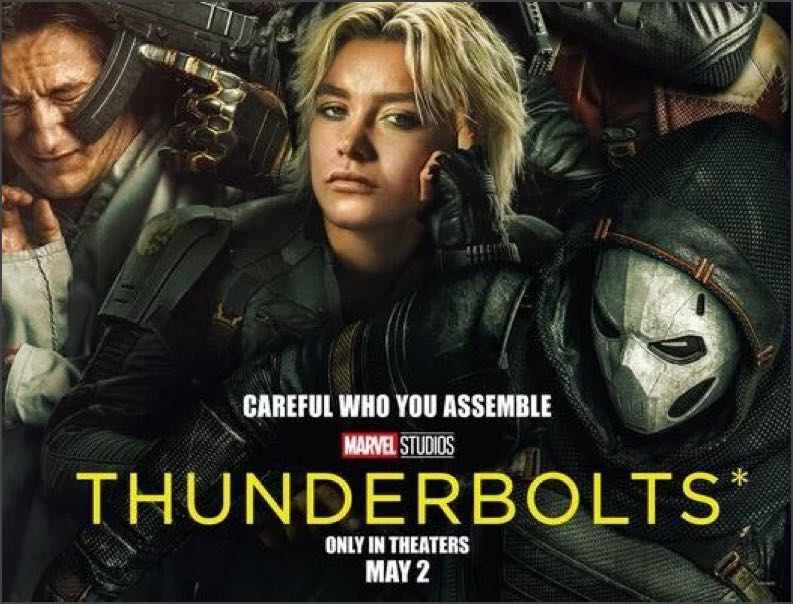
I’ve only just seen this latest addition to the Marvel Cinematic Universe. I went in without any great expectations of it, but I found myself enjoying it a lot. Lots of over-the-top action as you would expect, but also some laugh-out-loud humour, as well as moments of genuine pathos.
Good stuff.
From: John Hertz
Date: 19 February 2025
John: Glad to see you read The Absolute at Large. From your review of The Elements of Marie Curie I wonder if it might be a candidate for Best Related Book [in the Hugo Awards]. Hugo nominations opened on 10 February and close on 25 March. Maybe I can read it and consider it in time.
David: Good idea!
[Update: John later posted me his extensive review of The Elements of Marie Curie, so I presume he nominated it for the Hugo.]
If you’d like to make a modest contribution to my efforts in this newsletter, I’d love it if you would buy me a coffee.
Want to comment? Please send an email to:

© Copyright 2025 by David R. Grigg
and licensed under Creative Commons License CC BY-ND 4.0.